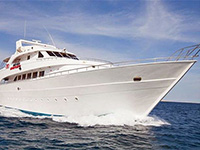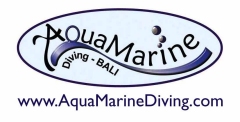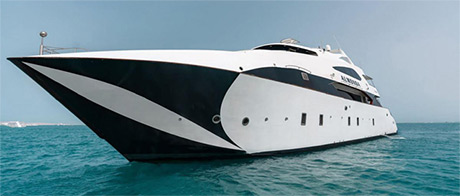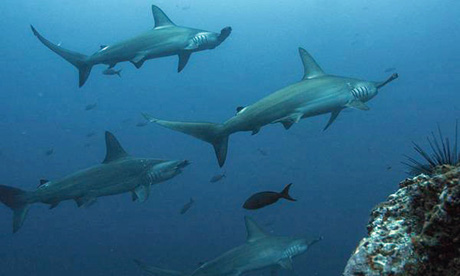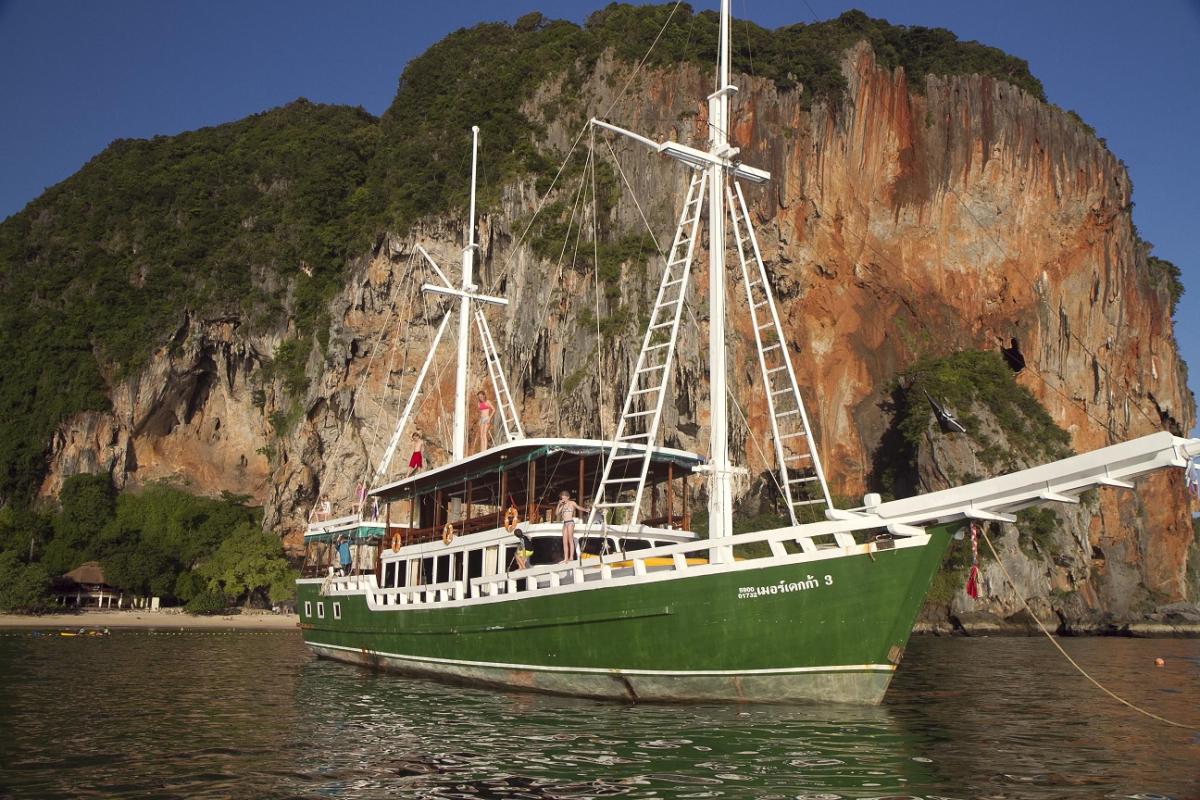Reviews: "Love the newsletters! Keep them coming" Janice Fleming...MORE REVIEWS

SCUBA News 285
(ISSN 1476-8011)
April 2024
~~~~~~~~~~~~~~~~~~~~~~~~~~~~
SCUBA News (ISSN 1476-8011)
Issue 285 - April 2024
https://www.scubatravel.co.uk
~~~~~~~~~~~~~~~~~~~~~~~~~~~~~
Welcome to SCUBA News. Our sea creature feature this month is lovely masked pufferfish, one of the planet's most poisonous animals. We highlight diving in France and step back in time to diving the Nicaraguan Corn Islands. Plus the liveaboard deals specially selected for us by Divebooker.
We've also teamed up with AquaMarine Diving Bali to offer you 10% off published prices, free rental gear and an AquaMarine Goodie-Bundle when you use code ScubaTravelUK2024. They are an excellent dive company and Bali is a stunning place to dive.
Any questions, reviews or comments to news@scubatravel.co.uk.
Contents:
What's new at SCUBA Travel?
Creature of the Month
9 Fantastic Liveaboard Deals: Save up to 30%!
Diving news from around the World
What's New at SCUBA Travel?
 |
Wreck Diving in the South of France The French Mediterranean is littered with wrecks sitting on sandy bottoms with clear warm water. What more could a confirmed wreck diver ask for?
|
 |
Diving into Caribbean Yesteryear: Nicaragua Nicaragua has many unspoilt dive spots. Journey back in time to the Caribbean's past on the secluded Corn Islands. Additionally, experience freshwater diving in volcanic crater lakes or dive on the rocky reefs of the Pacific coast.
|
 |
From Caves to Reefs: Discover the diving in the UK With impressive wreck dives, stunning underwater landscapes and unforgettable marine life encounters, should a UK diving adventure be on your wish list?
|
AquaMarine Diving - Bali
10% off published prices, free rental gear and an AquaMarine Goodie-Bundle when you use code ScubaTravelUK2024 at
AquaMarineDiving.com
9 Fantastic Liveaboard Deals - Save up to 30%
We bring you news of some brilliant dive boat deals, specially selected for us by Divebooker.com, the liveaboard specialists. Including some little dived destinations like Saudi Arabia's Five Corals and Seven Sisters. Divebooker will also help you with transfers and give 24/7 expert support. (We use them and on the two occasions we've needed help the support was excellent.)
- Almonda, Five Corals & Seven Sisters (Saudi Arabia), 8 - 15 June and 22 - 29 June 2024 (7 nights), SAVE UP TO 30%, Price from USD 1,850 1,295 per trip per person
-
Cocos Island Aggressor: Embark on an unforgettable Cocos Island Adventure from June 13th to 23rd spanning 10 nights. Book now and save $800 per person
- Caledonian Sky, Southern Lau Expedition (Fiji), 12 - 19 October (7 nights), Book in 6 months in advance and SAVE 20%, Price from USD 4,942 3,953 per trip per person
- Indo Master, Komodo National Park, 05 - 15 August 2024 (10 nights), SAVE UP TO 20%, Price from USD 5,250 4,462 per trip per person
(Cannot be combined with any compensation voucher or loyalty discount)
-
Seadoors, Philippines, 29 June to 5 July, SAVE 15% on diving Tubbataha
- Emperor Harmoni, Best of Raja Ampat, 21 - 30 May and 5 - 14 September 2024 (9 nights), Price from EUR 4,455 3,564 per trip per person, SAVE Euro 891
-
Tambora, Tranquil Sulawesi, 24 May - 3 June 2024 (10 nights), SAVE 30%, Price from USD 5,500 3,850 per trip per person
- Merdeka 3, Thailand, 29 April - 4 May, SAVE 15%, Price from $1116 $948 per trip per person. Small liveaboard with just 6 cabins offering South Andaman Dive 'n Chill Cruise from Phuket to Phi Phi island.
- Bahamas Aggressor, Exuma Cays and Southwest Eleuthera, 27 July - 03 Aug 2024 (7 nights), SAVE $700, Price from USD 3,195 2,495 per trip per person *Specials do not apply to group reservations
Masked Pufferfish - amongst the most toxic animals in the world
Our Creature of the Month today is the Masked Pufferfish, Arothron diadematus
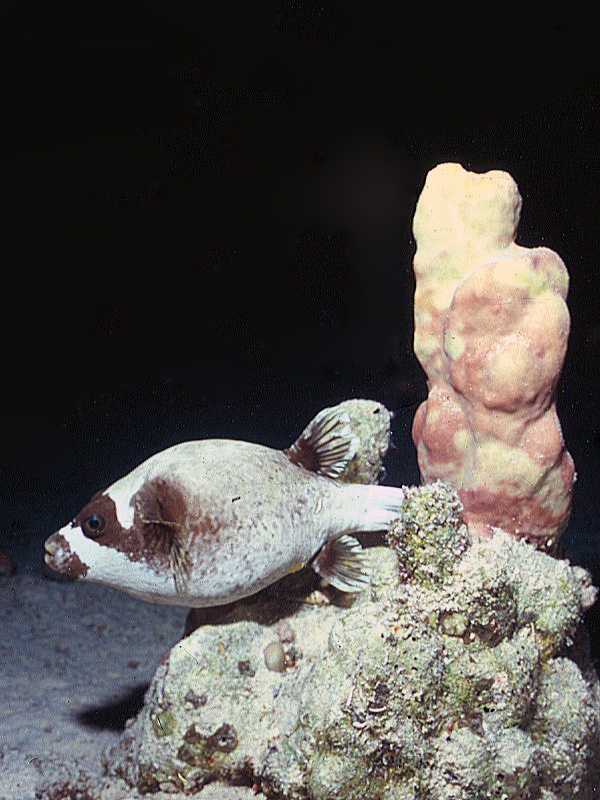
Taken on Sha'ab Hassan, Egyptian Red Sea by Tim Nicholson.
Distinctive looking, this small pufferfish has a black mask over its eyes reaching back to its pectoral fins, and a black mouth. It is common on fringing coral reefs in the Red Sea. Elsewhere it is replaced by Arothron nigropunctatus (the Blackspotted Puffer). However, some experts believe these to be the same species.
Masters of Self Defence
Pufferfish are bulbous fishes with a scaleless, prickly, skin. They are called pufferfish because when threatened they greatly inflate themselves with water, making themselves look much larger than they usually are. They do this by rapidly gulping water into their extending stomach. This makes them into a spiny ball three to four times their normal size. It can be stressful to the puffer fish though, so they only do this when seriously threatened. This defence mechanism is important because they move so slowly through the water.
Their second line of defence is their toxicity.
100 Times as deadly as the venom of the black widow spider
The Puffer is harmless, unless eaten. The liver, intestines, gonads and skin are highly poisonous and cause death in around 60% of people who eat it. If prepared properly the puffer (or fugu) is edible and considered a delicacy in Japan and Korea.
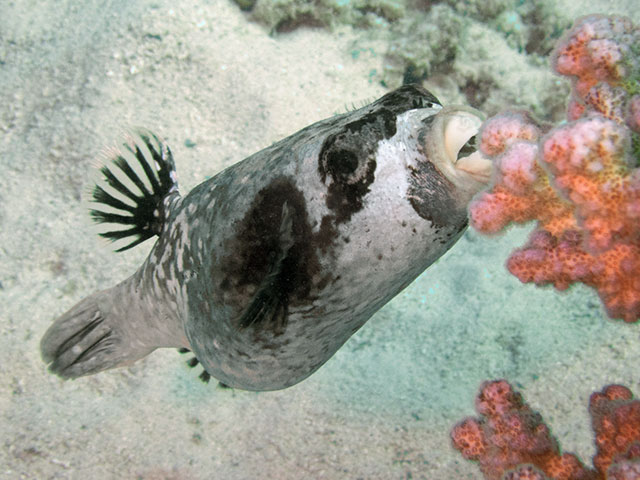
The Puffer's toxin - tetrodotoxin - is produced within the pufferfish by bacteria. The fish acquire the bacteria by grazing on the reef and eating molluscs and other invertebrates. Weight-for-weight, tetrodotoxin and is up to 100 times as deadly as the venom of the black widow spider and one of the most poisonous natural substances.
Pufferfish tetrodotoxin used to treat tumours
Researchers have shown that the masked pufferfish's toxin can be used to treat breast cancer, increasing lifespan by 46% and decreasing the number of tumour cells.
Fused teeth which never stop growing
Adult puffer fish have just four teeth, fused together into one strong beak. They can use this to open clams or mussels, and graze on coral. These teeth can regenerate indefinitely, so they never become completely ground down. The four teeth gave rise to both the name of their family - Tetraodontidae and the name for their toxin - tetrodotoxin, so named in 1894 by Dr. Yoshizumi Tahara.

References
Jill Studholme, 10 Fascinating facts about puffer fish - the most poisonous fish on the planet, SCUBA NewsFM Fouda, Anti-tumor activity of tetrodotoxin extracted from the Masked Puffer fish Arothron diadematus, Egyptian Journal of Biology
Tetrodotoxin Poisoning Associated With Eating Puffer Fish Transported from Japan
Jim Johnson, Tetrodotoxin...an ancient alkaloid from the sea...
Diving news from around the World
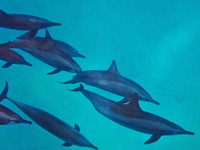 |
Dolphin Talk: Deciphering their language
|
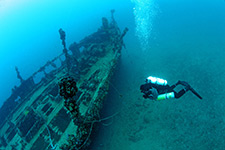 |
The Future of the Adriatic Past from shipwrecks to archaeological seascapes: Learning about sustainable dive tourism
|
 |
One dead and 17 divers rescued in Malta
|
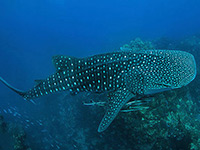
|
Diver fined for touching whale shark in Thailand
|
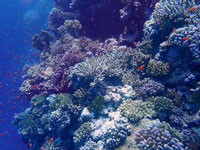
|
Tanker grounds in marine reserve: Egypt detains vessel
|
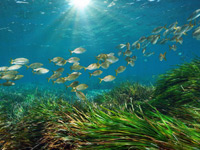
|
Greece Becomes 1st European Nation To Ban Bottom Trawling In Marine Parks and Protected Areas
|
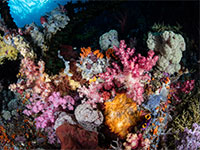
|
A coral superhighway in the Indian Ocean
|
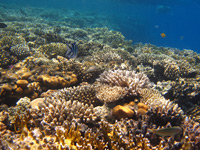 |
Healthy Reef Sounds Increase Coral Settlement
|

|
Impact of climate change on marine life much bigger than previously realised
|
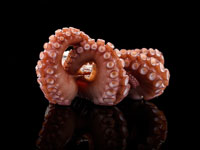 |
Scientists create octopus survival guide to minimise impacts of fishing
|
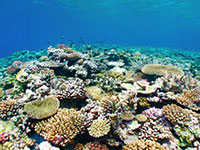 |
Reef-World Joins Big Give Green Match Fund to Save Coral Reefs
|
 |
100 New Ocean Species Discovered in New Zealand
|
SCUBA News is licensed under a Creative Commons Attribution 4.0 Unported License. This means we are happy for you to reuse our material for both commercial and non-commercial use as long as you: credit the name of the author, link back to the SCUBA Travel website and say if you have made any changes. Most photos though, are copyright the photographer. Please get in touch for details.
Photo credits: Diego Grandi, Tatiana Ivkovich, Steven Redmond, Andrea Izzotti/DepositPhotos, Tim Nicholson, Jill Studholme, Garry Frazer, Albrecht Fischer
UNSUBSCRIBING
Visit {?$optout_link?} to remove yourself from the mailing list. Any problems
contact news@scubatravel.co.uk.
ADVERTISING
Should you wish to advertise in SCUBA News, please
see the special offers at
https://www.scubatravel.co.uk/newsad.html
Other advertising opportunities are at
https://www.scubatravel.co.uk/diving-advertising.html
CONTACTING THE EDITOR
Please send your letters or press releases to:
Jill Studholme
SCUBA News
The Cliff
DE6 2HR
UK
news@scubatravel.co.uk
SCUBA News (ISSN 1476-8011)
Every month we send out a free newsletter featuring the best diving areas, underwater life, diving book reviews and interviews with authors. To receive this please fill in your e-mail address below. For an archive of previous issues see the SCUBA News page.
